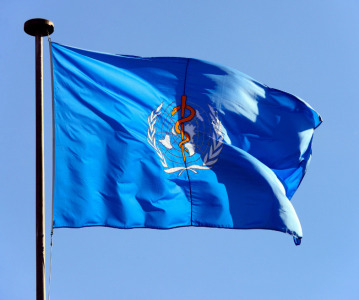Promacta receives FDA Breakthrough Therapy designation for first-line use in severe aplastic anemia
.png)
Data supporting designation showed over half of treatment-naïve SAA patients achieved complete response with Promacta when given with standard immunosuppressive therapy, with overall response rate of 85%.
FDA has granted Breakthrough Therapy designation to Novartis's Promacta (eltrombopag) for use in combination with standard immunosuppressive therapy for the treatment of patients with severe aplastic anemia (SAA) as a first-line therapy. Promacta, which is marketed as Revoladex in most countries outside the US, is already approved as a second-line therapy in the refractory setting in SAA. Promacta is also approved for adults and children with chronic immune thrombocytopenia (ITP), for patients who are refractory to other treatments.
SAA is a rare blood disorder in which a patient's bone marrow fails to produce enough red blood cells, white blood cells and platelets. As a result, people living with this serious disease may experience debilitating symptoms and complications, such as fatigue, trouble breathing, recurring infections and abnormal bruising or bleeding that can limit their daily activities. Up to one-third of patients do not respond to current therapies or relapse, causing symptoms to return.
"Promacta is a promising medicine that, if approved for first-line use in severe aplastic anemia, may redefine the standard of care for patients with this rare and serious bone marrow condition," said Samit Hirawat, Head, Novartis Oncology Global Drug Development. "We will continue to work closely with the FDA to make Promacta available to patients with SAA who are new to treatment as soon as possible."
Novartis' analysis of research conducted by the National Heart, Lung and Blood Institute (NHLBI) of the National Institutes of Health (NIH) showed that over half (52%) of patients with treatment-naïve SAA achieved complete response at 6 months when treated with Promacta at the initiation of and concurrently with standard immunosuppressive treatment. The overall response rate was 85%.
Related News
-
News Pharmaceutical industry supports COP28 health stance in joint statement
As COP28 takes place over this week in Dubai, UAE, several bodies in the pharmaceutical and health industries have come together to announce support of key movements in sustainability in the sector, and to recognise sustainability as a health issue.&nb... -
News Biden backs Cold-War measures to shore-up medical supply chains
In a recent strategy to combat rising inflation and the cost of living crisis, President Joe Biden has invoked a Cold War-era act to increase investment in a selection of medicines and supplies. -
News CPHI Podcast Series: What does the changing US Pharma market mean for industry and patients alike?
In this week's episode of the CPHI Podcast Series Lucy Chard, Digital Editor for CPHI Online is joined by James Manser to discuss the political and market changes in the US pharma field. -
News Which 10 drugs are open to price negotiation with Medicare in the USA?
The Centres for Medicare & Medicaid Services, under the Biden administration in the USA, has released a list of the 10 drugs that will be open to price negotiations as part of the new legislation under the Inflation Reduction Act (IRA). -
News 10 Major Drug Approvals So Far in 2023
Last year, 37 novel drugs were approved by the FDA, this was a high number for such a category, and covered many fields including oncology, demonstrating how promising further research is, and how it is only continuing to build. To date, there are alre... -
News Novartis agrees for copies to be made of cancer drug to reach poorer countries
Novartis signs agreement with MPP to have generics of it's leukemia drug made so that it can be more easily distributed to the world's poorer countries. -
News CPHI Podcast Series: outsourcing and manufacturing trends
Listen to the CPHI Podcast Series this June to hear Gil Roth of the PBOA speak with Digital Editor Lucy Chard about the biggest trends and topics to watch in pharma outsourcing and manufacturing at the minute. -
News New WHO health emergency guidelines expect full transparency from Big Pharma
The WHO are proposing a new set of pandemic guidelines to set out how future global health crises should be handled.
Position your company at the heart of the global Pharma industry with a CPHI Online membership
-
Your products and solutions visible to thousands of visitors within the largest Pharma marketplace
-
Generate high-quality, engaged leads for your business, all year round
-
Promote your business as the industry’s thought-leader by hosting your reports, brochures and videos within your profile
-
Your company’s profile boosted at all participating CPHI events
-
An easy-to-use platform with a detailed dashboard showing your leads and performance







